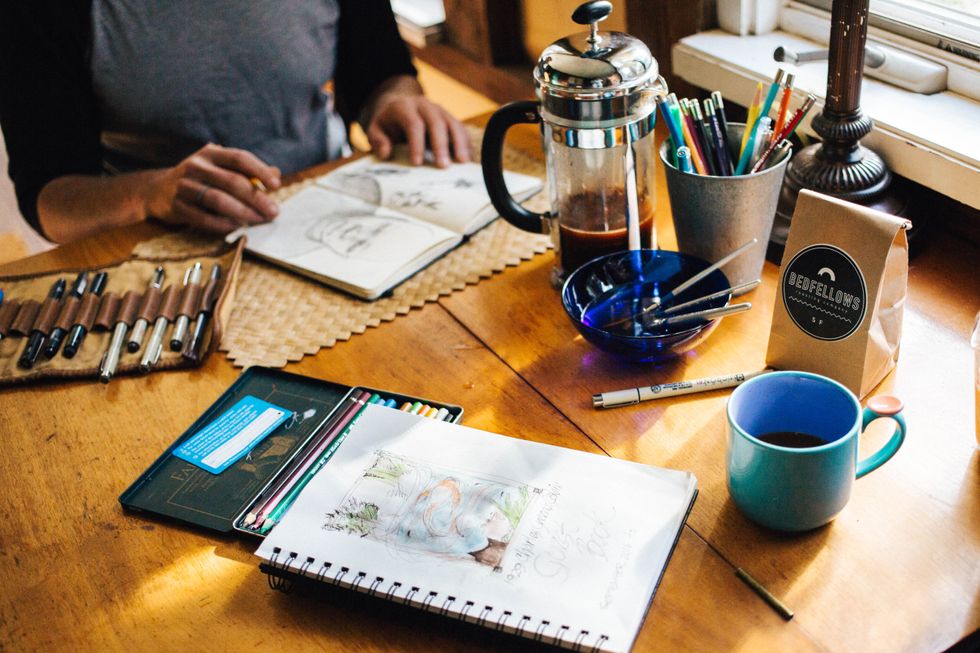As a journalism major and aspiring magazine editor, a major part of my field of study and future career is creativity. I'm constantly coming up with story ideas and ways to make a story as interesting as possible – and I'll have to continue to do so for many years to come.
This creates a very real fear for me, and that is: what if I stop coming up with ideas? What if one day I just blank? My career would be over.
And this isn't the only scary thought that comes along with having a creative-based profession. Oliver Burkeman, a columnist for the Guardian, wrote that "creative work is a collision point for numerous deep-rooted fears: of ridicule, of social rejection, of discovering you lack talent – not to mention the fear of stirring up emotions you’ve been expertly repressing for years."
If you're in a similar field in which your day-to-day depends on being innovative, I'm sure you understand these feelings. I definitely worry about my creativity fading away to nothing sometimes, and I almost always feel self-conscious when sharing my work.
As for conquering the fear of facing potential judgement or criticism, Burkeman recommends "treating fear like an annoying younger sibling," and acknowledging that it's there, but not letting it take over.
Kameron Hurley, novelist, also has touched on the subject of fear within a creative process.
"When writing becomes a job, so much of the joy of creation gets lost in the fear and the failure," he wrote in a blog post. "What I’ve found is that the only thing that brings me back is the work itself. It’s finding the joy in the process, of silencing my inner critic and just telling myself, "You’re just having fun right now. This isn’t for anyone else."
It can take a lot to convince yourself to not care what others may think, especially when you're putting your voice out there and making yourself vulnerable. However, it's worth it, and I've found doing so helps to makes your best work.
This advice also works for facing the fear of burning out. Seth Godin's New York Times bestseller, The Dip, defines this more specifically as a setback in your creativity during which you feel like you're trying really hard, but not making any progress.
One of the main things that keeps me going is reminding myself that there are people who have been writing their whole lives, and they continue to come up with original, fresh perspectives. It's amazing really when you think about how every creative industry has been advancing for decades, and there's really no sign of it stopping. This simply shows that it's possible to create for years and years. Just knowing that it can be done is comforting.
Another realization that's really helped me is that the world is constantly changing. People all over the world are getting older, growing in themselves. New technology is emerging every day. There will never be a day when everything is stagnant. People are constantly moving, and they're interesting. As long as this is true, and I can't see a future when it's not, there will be new inspiration everywhere.
And inspiration is the key. Staying curious and looking deeper at things that others see as ordinary. Listening to music. Following what someone who inspires you does. Reading. Finding a meaning in everything you can.
Not only does this help get ideas flowing, but it adds more color to life. When you look closer, you have the potential to discover new things about life and yourself you might've never even thought of.


















